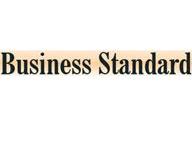In an op-ed, Dean Peter Henry argues that capitalism creates jobs













Excerpt from TopMBA -- "Gallogly says the program will likely be of interest to applicants, 'who really are very driven, very motivated, and very structured and who have the time right now.' He notes that students in the accelerated program who have a life change – a new job or the birth of a child, for example – can opt to slow down and complete the program in up to six years."

Excerpt from TopMBA -- "Gallogly says the program will likely be of interest to applicants, 'who really are very driven, very motivated, and very structured and who have the time right now.' He notes that students in the accelerated program who have a life change – a new job or the birth of a child, for example – can opt to slow down and complete the program in up to six years."





































